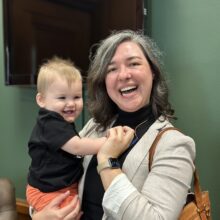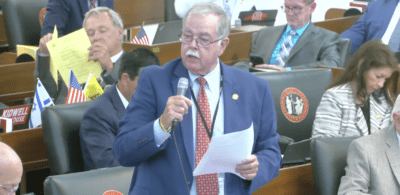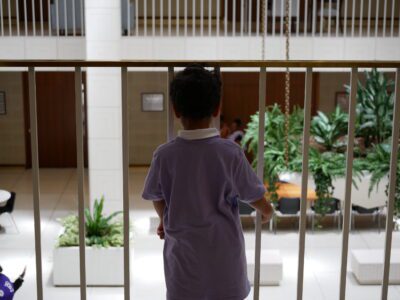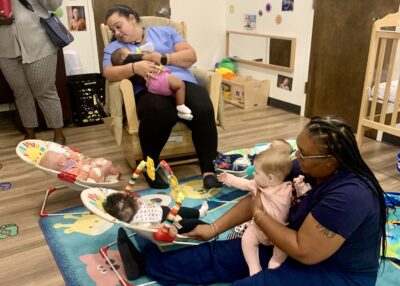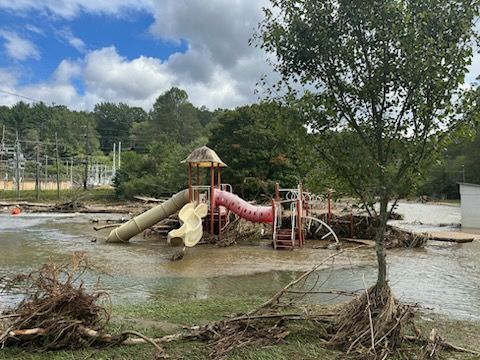
|
|
Update, Oct. 3 at 4:00 pm: Out of the 818 licensed child care programs in the region impacted by Hurricane Helene, a Department of Health and Human Services spokesperson said the department was unable to reach 332 programs and confirmed that 300 were open, 173 were operational but closed, and 13 had damage that will prevent opening as of Wednesday, Oct. 2.
Child care in western North Carolina was hard to come by before Hurricane Helene devastated the region last week, taking lives and leaving communities underwater.
Now, child care programs will need even more support to rebuild, recover, and serve families, said Amy Barry, director of Buncombe Partnership for Children.
“They’re already in a fragile state,” Barry said. “If they have sustained damage, they’re not going to have the funds in the short-term, or maybe at all, in order to address that damage.”
Short-term needs
In a statement released on October 2, Candace Witherspoon, acting director of the state Division of Child Development and Early Education (DCDEE), said there are more than 800 licensed child care programs in the 25 counties that make up the federally-designated region impacted by the storm. Many are still without power and cell service and DCDEE does not know how many programs have been damaged.
“We are deeply saddened by the devastating loss of life and property wrought by Hurricane Helene,” the statement read. “The path of the storm was unexpected, its strength ferocious, and the magnitude of its destruction is nearly incomprehensible. DCDEE pledges our support to our colleagues and fellow early childhood professionals in the affected areas as they prioritize taking care of themselves, their families and neighbors.”
The division is working through its child care consultants to reach out to programs and develop flexible policies, the statement read. The state will base subsidy reimbursement payments on full attendance if programs are unable to submit attendance records.
DCDEE leaders are meeting daily to develop policy flexibilities to address the many difficulties the early childhood community in western NC may face in getting back on its feet. We don’t yet know the extent of their needs, but we are already working hard to eliminate barriers to reopening, provide guidance and assistance with temporary emergency relocation, and process subsidy and NC Pre-K reimbursement payments. The Hold Harmless for QRIS is still in place.
For example, the NC FAST portal is open Sept 30-Oct 5 for providers to submit attendance as they are able. For any unsubmitted September rosters where we expect attendance (provider is active in system and has valid and active vouchers), the system will mark all children as present, submit those rosters and process payments on the normal schedule. Providers who cannot access the portal will NOT have to take any action for this to happen. We are also exploring ways to handle recertification for families receiving child care fee assistance.
Go here for information on fatalities, search and rescue operations, the distribution of food, water, and supplies, local spots to access Wi-Fi, how to report a missing loved one, how to request federal assistance, and how to donate or volunteer.
Barry said child care providers and families are in need of baby wipes, formula, and diapers.
“Infants and young children have the biggest needs right now,” she said.
Long-term needs
Lori Jones-Ruff, interim director of Southwestern Child Development Commission, said she is working to assess what long-term needs early childhood programs have.
“Once the initial things pass, making sure that people have food, water, shelter, what they need now to get them through these coming days, then what are the needs of some of these child care programs just to be able to reopen?” Jones-Ruff said. “That’s where my mindset is.”
The commission had to close seven of its child care centers in October 2023 due to insufficient funding.
As federal pandemic-era stabilization funding for child care dwindled this summer, many programs have made difficult decisions.
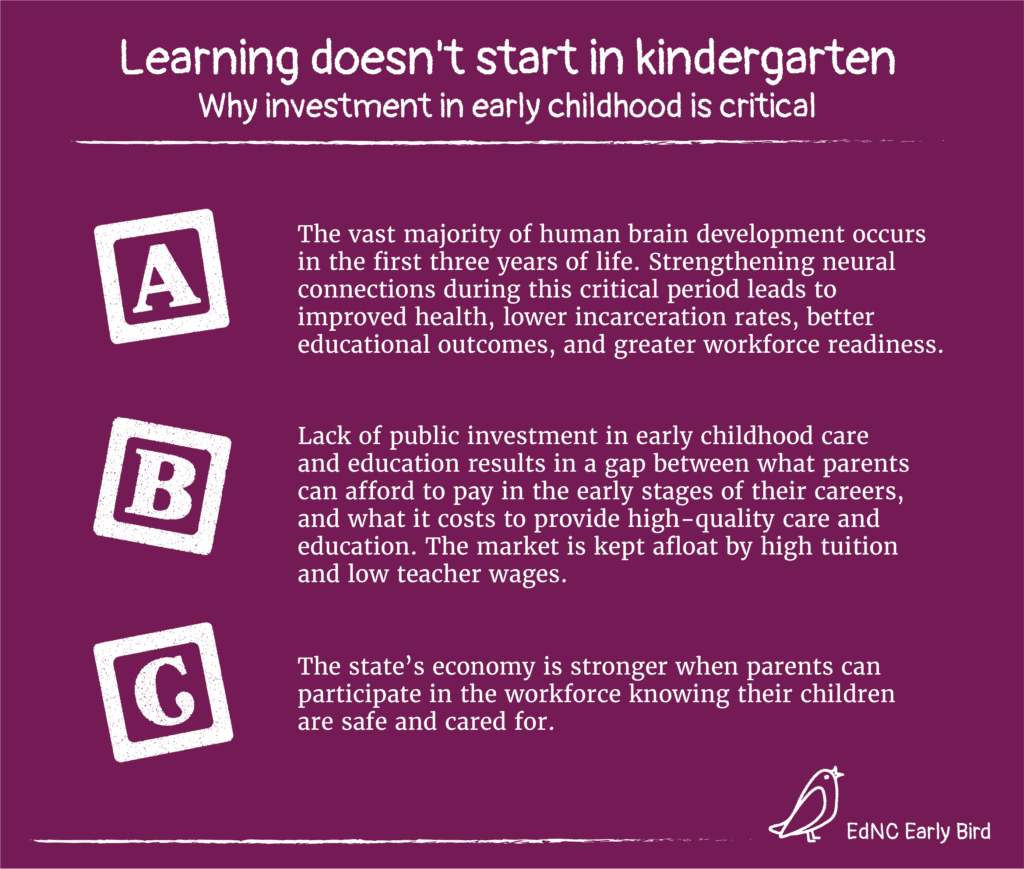
A February survey predicted the majority of programs would have to raise tuition rates in order to retain teachers. It also predicted that one-in-five programs would close within a year without additional outside funding. The state provided short-term help this legislative session, continuing 75% of the federal funds, to last through December.
Barry said the workforce challenges of the pandemic will be exacerbated by the storm for providers impacted by Helene.
“A big concern in the child care community is that folks won’t have the funds to pay workers,” Barry said. “While unemployment is available, we don’t want to have that same huge issue that we had in COVID about losing so many people, just as we’re trying desperately to build back up.”
Early care and learning programs play a crucial role in brain development during the first three years of life, a fact that will be especially salient for young children who have experienced trauma related to the storm.
Alissa Rhodes closed her home-based child care program in Swannanoa in July as federal funds ran out. This week, she fled to Maryland with her children as Hurricane Helene hit.
“We are in crisis, and I’m worried what kind of care options we are going to have in the western part of the state — if it’s going to be existent,” Rhodes said.
With many providers making decisions on whether to stay open month to month, she said programs will need consistent support to survive.
“I can just see them saying, ‘We’re done. We’re throwing in the towel. We’ve lost our stabilization money. We’ve had this hurricane hit. I don’t have as many clients because, you know, Johnny’s dad is out of work now, or homeless, and they can’t afford to pay me,’” Rhodes said. “It’s dire that we get the financial resources to the early care and education community in order for them to sustain themselves.”
Previous licensed child care closures
EdNC has been tracking changes in the number of licensed child care programs over the last year.
Using quarterly data provided by the NC Child Care Resource and Referral Council (CCR&R) in partnership with the NC Division of Child Development and Early Education (DCDEE), we found the 25 counties in N.C.’s federal emergency disaster declaration had 750 licensed child care programs in February of 2020.
Since the pandemic, these counties have experienced a net loss of 31 programs. About half of those losses (15) occurred between July 2023 and June 2024, during the period when federal stabilization grants were phasing out.
We are actively collecting data to determine which programs remain open, which are closed temporarily, and which are closing their doors permanently in the face of this disaster. If you have information that could help, please contact Liz Bell (lbell@ednc.org) and Katie Dukes (kdukes@ednc.org).



